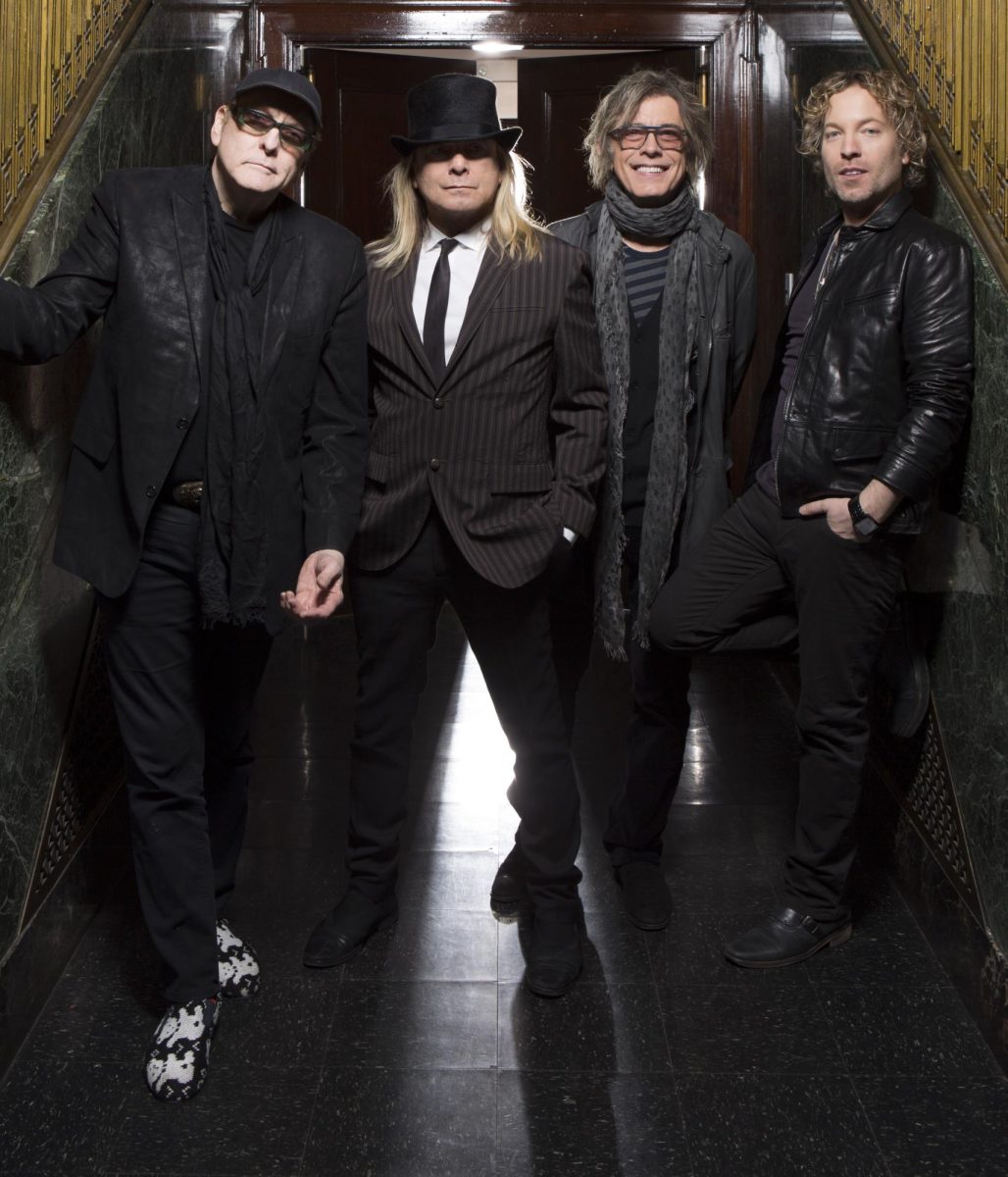Now that live music is back, with it comes a string of Cheap Trick concerts. It’s something the veteran act has done on a consistent annual basis ever since forming in Rockford, Illinois, in 1973. The lineup of shows includes a benefit concert at Bolm-Schukraft Memorial City Park, 1200 N. Evergreen Lane, Columbia, Illinois, on Sept. 15 and Sept. 16 at 5:30 p.m., part of KSHE 95’s “Songs 4 Soldiers.”
The year-and-a-half in which touring came to a standstill during COVID-19 didn’t mean founding member Rick Nielsen sat back twiddling his thumbs.
“I’ve never been home that much ever,” he said with a laugh during a phone interview. “It wasn’t inspiring, but it was interesting. Everybody was in the same boat—me the same as you and the next guy. I have other things I do—organizing things, working on my guitar collection—stuff I can’t do from the road so well. I try to create jobs for other people and that’s what I did.”
One of thing that came out of quarantine
is “In Another World,” Cheap Trick’s twentieth studio. While its official release date was April 2021, a couple of singles were leaked out dating back to 2018, including the opening cut “The Summer Looks Good On You.”
It’s the kind of seasonal earworm that would have been all over radio in an earlier age. Instead, it’s ignored by classic rock stations more content with playing the live version of “I Want You To Want Me” for the millionth time versus letting the public know Cheap Trick has a new album.
Other highlights include “Here’s Looking At You,” a co-write with hit songwriter Linda Perry that finds both artists digging into a deep power pop vein erupting with an urgent torrent of melodic hooks. Elsewhere, veteran harmonica player Jimmy Hall is tapped to play blistering harp on the sinewy blues of “Final Day.” It’s a collaboration that finds Nielsen drawing from longstanding relationships and opportunities to better a song rather than being any kind of strategic marketing maneuver that often looks better on paper than in reality.
“We’ve known Jimmy Hall through the years with Wet Willie and we had a part where Robin [Zander] plays harmonica, and while he’s really good, Jimmy Hall is way better,” Nielsen said. “We’ve worked with well-known players before and it didn’t turn out the way we wanted. With Jimmy, he just fit right in. As for Linda, we’ve known her for a while. She played us part of this tune and we fleshed it out. We’ve done three or four things with Linda and she’s just a terrific writer.”
Wrapping up this baker’s dozen-worth of songs is a reading of John Lennon’s “Gimme Some Truth” featuring friend and ex-Sex Pistol Steve Jones on guitar. While fans might scratch their heads over the decision for the apolitical Cheap Trick to cut one of Lennon’s more overtly political songs, it made perfect sense to Nielsen and his band mates.
“We’re not a political band, but we talk about politics amongst ourselves,” Nielsen explained. “These are songs that we’d written over a period of time, including during the last four years of the last administration—it’s about how to be optimistic in a pessimistic world.”
Dependably consistent might be the best way to describe Cheap Trick. For Nielsen, his musical path started out being the son of opera singers who moved the family from Elmhurst, Illinois to Rockford, where they opened a music store.
“I was self-taught and I still think of myself more as a songwriter than a guitar player,” he said. “There are all these guitar whizzes around—I’m not one of them.”
Those compositional chops have roots in both the British Invasion sensibilities of groups like the Fab Four, Stones, Yardbirds, Who and The Move and the rich trove of blues legends plying their trade in Nielsen’s childhood Chicago backyard. And while The Phaetons morphed into The Grim Reapers (where Nielsen first met future bass-playing bandmate Tom Petersson), the guitarist’s trip to Cheap Trick included a brief stint replacing Todd Rundgren in Nazz and in the short-lived band Sick Man of Europe. His current group eventually got off the ground fronted by former singer Randy “Xeno” Hogan, who left the band shortly after its formation. It was then that Nielsen extended an invitation to Zander to join Cheap Trick.
“Robin is the singer I’ve always looked for to sing my songs,” Nielsen said. “All the other singers we had were capable but they weren’t the interpreters that Robin was.”
In the nearly five decades since forming, Cheap Trick has relied on a disciplined work ethic that Nielsen acknowledges has earned them a reputation for being a rock-solid live act to this day. And while the fickle tastes of the music industry and fair-weather fans have ebbed and flowed, Nielsen and company have established both a solid canon of music and become a much-loved cult act whose hard work landed them in the Rock and Roll Hall of Fame in 2016. For Nielsen, his band’s longevity is rooted in staying true to their roots of being a rock and roll band with an ear for pop.
“I say this as kind of a joke—we’ve never progressed,” he said. “We didn’t try to be something we weren’t. We started off pretty good, but to never progress means we didn’t want to be a jazz group or a metal act. We’re just trying to be what we did. … We’re Cheap Trick. The playing and our music set us apart. We didn’t have any dance steps worked out. We’ve never worried about changing for the sake of change.”



